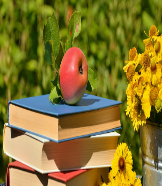I feel this a full circle moment, in that the school I have attended for most of my adult life, the University of British Columbia, has undergone many vital changes over the last few decades. I came across another related website, that again ties in with my final assignment and my own personal experiences, which has brought back many memories of my educational journey, from 2006-2007, when I was learning to become an educator. I had an opportunity to visit a place where teaching, learning, and research, was interconnected with Indigenous knowledge and sustainable food growing. There was an idea that was planted on campus, which focused on Indigenous food sovereignty, food security, and traditional plant knowledge. Here, the students, like myself, could gain a wealth of knowledge and have access to both traditional and non-traditional plants/food uses of the Indigenous peoples.

Public Domain photo by PXhere
This garden today has become a guide on the principle that ‘food is medicine’ and follows the research ethic framework of the “4R’s: respect, relevance, reciprocity, and responsibility” and a holistic understanding of health and healing. It has become grounds for an international, community-based research and land-based teachings, where the garden engages with numerous regional Aboriginal schools, communities, and organizations. This life motto has always resonated deeply with me, and I had no idea how much of it has had a positive influence in my life, not only as an educator, but as a learner.
Reference:
Indigeneous Research Partnerships. (2014). Highlights from the Indigenous Health Research & Education Garden: 2014. Retrieved July10, 2021, http://lfs-indigenous.sites.olt.ubc.ca/files/2015/03/2014-Highlights-from-the-Indigenous-Health-Research-and-Education-Garden.pdf